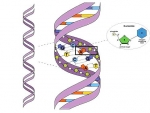DNA Sampling: Rights and Duties
Abstract Category: Laws
Course / Degree: Doctor of Laws
Institution / University: University of Malta, Malta
Published in: 2003
The main premise of this thesis is that DNA sampling constitutes a violation of bodily privacy, and that therefore for its use there must exist sufficient justification with adequate legal safeguards in place to warrant against abuse. It is also central to the theme to point out, as in other instances of the law, that where DNA sampling is resorted to, this cannot be done involuntarily. Thus it is always necessary to obtain the consent of the person from whom sampling is sought in order to provide the best evidence possible in a court of law.
Furthermore, due to advances in the field of science it has become possible to sample for DNA from practically any bodily material. This fact in itself has several important implications, particularly in the field of Criminal Law, where the distinction in bodily samples, listed in the new amendments to the Criminal Code by virtue of Act III 2002, is rendered virtually irrelevant.
The fundamental difference between DNA evidence and other forms of biological evidence is the quality of information that DNA analysis will reveal. Given that it is the analysis which reveals the information, the reader may be attempted to negate the idea of finding fault with the sampling, and instead opt to reform the legal aspect of DNA analysis. Though the case is also made for the need of a tough regulatory framework within which laboratories are to operate, the lacunae in the fresh amendments to the Criminal Code must receive first priority treatment.
The thesis takes a broad look at foreign law and jurisprudence, and a distinction is drawn between the continental and common law systems. An appraisal of the Maltese position as at present, and as obtaining under the new amendments is included. Here the author has made a critical analysis of the situation with regard to DNA evidence and has made the case for the best evidence rule in support of that evidence. It is contended that the present position (with the fresh amendments) do not contribute positively to the observance of this rule. In order to reach the conclusions and proposals for reform, the author has examined past decisions in order to garner the prevailing opinio juris on scientific evidence and expert testimony.
Thesis Keywords/Search Tags:
DNA, database, sampling, privacy, bodily integrity, confidentiality, consent, search, seizure
This Thesis Abstract may be cited as follows:
Calleja, E. (2003), DNA Sampling: Rights and Duties, Unpublished Doctor of Laws Thesis, University of Malta
Submission Details: Thesis Abstract submitted by Etienne Calleja from Malta on 08-Oct-2003 22:41.
Abstract has been viewed 4203 times (since 7 Mar 2010).
Etienne Calleja Contact Details: Email: eac1024@onvol.net
Disclaimer
Great care has been taken to ensure that this information is correct, however ThesisAbstracts.com cannot accept responsibility for the contents of this Thesis abstract titled "DNA Sampling: Rights and Duties". This abstract has been submitted by Etienne Calleja on 08-Oct-2003 22:41. You may report a problem using the contact form.
© Copyright 2003 - 2026 of ThesisAbstracts.com and respective owners.
